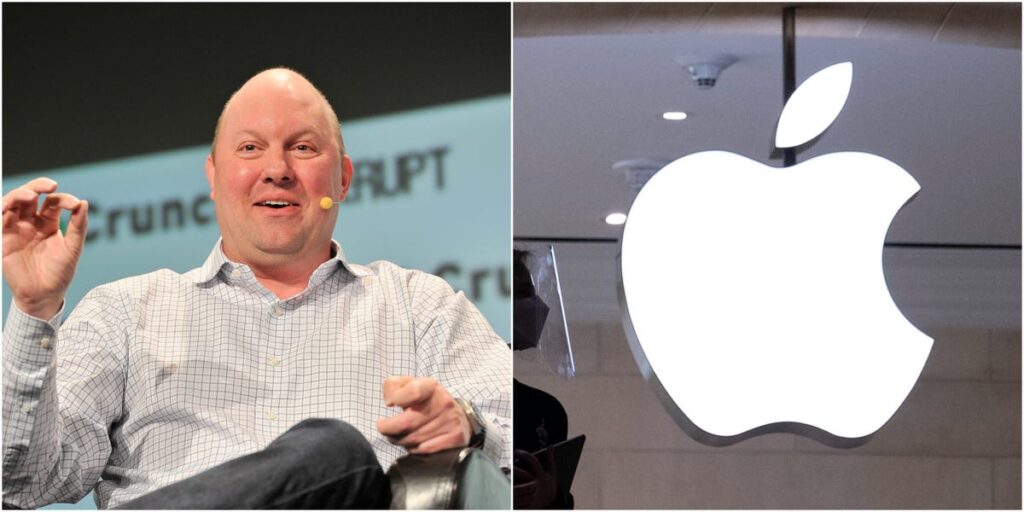The iPhone catapulted Apple onto the Mount Rushmore of tech, and the device’s successor could do the same for someone else.
Smartphones as we know them will eventually feel “primitive,” billionaire venture capitalist Marc Andreessen said in a new interview on the “TBPN” technology podcast that aired Friday. At some point, he said, everything becomes obsolete.
The big question: What comes after the smartphone?
“Whoever cracks the code on that will be the next Apple,” Andreessen, cofounder of venture capital firm Andreessen Horowitz, said.
Creating a product that makes the smartphone obsolete will require a level of innovation that the world has yet to see, Andreessen said. It could take three years or two decades.
However, companies are already working to develop gadgets that don’t require a screen.
OpenAI cofounder Sam Altman, for one, is developing an AI-powered device that isn’t a smartphone or wearable. Altman has teamed up with the former Apple design chief Jony Ive, one of the key figures behind the iPhone, though they’ve kept much of the details under wraps, including its form factor.
Elsewhere, AI startups like Rabbit and Humane are experimenting with screenless devices that operate as a companion to your smartphone or use projections instead of a screen.
Meanwhile, Meta’s smart glasses, fitted with cameras, a voice assistant, and speakers, are showing signs of consumer interest. However, CEO Mark Zuckerberg doesn’t expect them to replace phones anytime soon.
“It’s not like we’re going to throw away our phones,” Zuckerberg told The Verge in September, “but I think what’s going to happen is that, slowly, we’re just going to start doing more things with our glasses and leaving our phones in our pockets more.”
Andreessen said the object that kicks off a new era of technology could be eye-based, voice-operated, or have some sort of environmental computing. (His VC firm Andreessen Horowitz did not immediately respond to a request for comment from Business Insider.)
Apple itself could be the one to lead the next revolution in tech. It likely has time to work on it, Andreessen said.
“I think it’s highly likely that we’ll have a phone for a very long time,” he said.
Read the full article here


